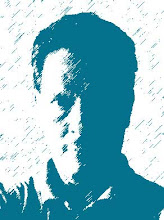These days, it seems that the new bandwagon to drive through the digital dust is the one about creating a buzz and attractive public relations glitter with a Social Media Initiative of whatever sort, the more social the better. There is one going on, just as an example, about visiting various countries as ambassadors of happiness and good will (never mind that developing countries need real nutrition, not just a soft sugary drink in their diets).
But my main concern is that just jumping into a trend and calling yourself or your company social media initiative does not make it so. Social media and social marketing are there, new powerful marketing and communication tools for the user. But just adopting that label and terminology does not change or make anything. What is the difference between social media and the interactive Internet web pages of Web 2.0?
So, in the various initiatives being created as social media, one has to question the specific and particular use of these social media tools. What is actually being proposed and what will the initiative accomplish. Will it accomplish something useful to facilitate, usability, findability, interactivity, communication to the customers? Or is the approach a marketing ploy to create PR by association and make the public think that something definitely is going on but instead it turns out to be just activity that promotes the company's products/services. Eventually, the customer will figure it out and then there is desillusionment, to say the least, consequently.
I would suggest, that before these Social Media Initiatives are deployed/launched, that there is a need to examine the whole thing/plan as to how it fits in the overall scheme of things, and what it is designed to do (not just to incite and psychologically promote products/services--find the real social in it) and do the soul searching for the realistic and genuine value being presented and communicated and find the real social that it is attempting to mediate. Specifically, there must be a to management level examination and its program, and a genuine reviewing of strategies, policies, procedures, budget levels/resources, and qualifications of human resources being used to produce the social media initiative.













